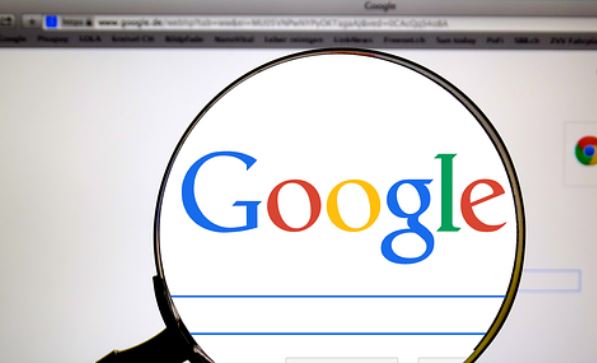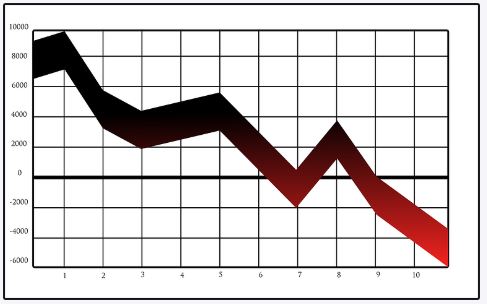Remember Panda and Penguin? Back in 2011 and 2012, Google launched these two major updates that took the online world by storm. SEO was never the same again. Webmasters and website owners had to redesign their SEO strategies, work harder and pay attention to each new update rolled out by Google’s engineers.

This article will explain the following:
- What is this new BERT update for Google’s search algorithm?
- What does this new update mean for your SEO campaigns?
- Your traffic is dropping – what should you do?
Google launches new updates to its search algorithm almost every month, but the major ones are only popping up every few years. BERT, the new major update for the search engine was announced on October 24th, 2019, and became active in the following days. According to the company, the update, nicknamed BERT, will affect about 10 percent of the queries, making it one of the most important updates in the last 5 years. But will it be as significant as the old Penguin or Panda? There is a lot of anxiety in the online world and everyone is waiting to see its effects. Let’s go over the specifics and see what BERT is all about…
BERT is an acronym and is short for “Bidirectional Encoder Representations from Transformers”. This already complex phrase is explained by an even more baffling one: according to the company, it is a “neural network-based technique for natural language processing (NLP) pre-training…” and it goes on and on…
Sounds a bit confusing, right?
Well, don’t worry about the technical wording – we’ll try to break it down and explain it in simple English in this article!
What is this new BERT update for Google’s search algorithm?
In short, the new update is designed to help Google better detect the intent of search engine queries. It’s focused on interpreting phrases instead of simple words. When a search consists of a phrase, Google will try to see it as a phrase and return the results based on how the phrase is created and sounds. This is because even the simplest phrases can have an entirely different meaning when compared to singular or random words.
Here are some examples provided by Google to showcase this common issue
In this example, the difference between searching for information about traveling from the United States vs. to the United States is shown and interpreted by the search engine:
In another example, Google has previously misidentified the word “stand” as “stand-alone”, which is the wrong version for the search query. In this case, the searcher was looking for information about the physical demands of the job. With the BERT update, Google will better interpret similar queries, returning more accurate results.
As you can see, the results are better and the search engine detected what the person searched for and what type of results he or she wanted to get.
So, what does this new update mean for your SEO campaigns?
The first thing you’ll need to do after the release is to check whether there are any changes in the traffic to your web properties. Check if there is more or less traffic, particularly in the next few days, as the algorithm goes into full action. The major positive aspect of this update is that it won’t affect certain websites, as were the Penguin and Panda updates just a few years ago. It is designed to just make the search engine better understand the search query and the user’s intent.
The best way to take advantage of this new update is to have the right answers for the right questions on your website. So, if a person looks for specific information, he or she will find the right information. Essentially, this can be expanded into the old internet saying – content is king. It means you must have better content which actually provides good information to your readers. We believe that well-written, long-form, in-depth content will be the major winners of the BERT update. In fact, some websites are already noticing a change in their traffic, particularly for long-tail keywords (phrases with 3 or more words).
Your traffic is dropping – what should you do?

Ooops, you checked the traffic statistics after the update and… it’s bad news! It’s dropping. Okay, stay calm… But what should you do?
The first thing – don’t do anything, just stay calm until the dust settles. Every update works like a shock and will have some immediate effects which can change over time. This happens because Google launches the update and then will continuously work on it. Tweaking, reversing and slight modifications are very common for several weeks following an update, so the search results and traffic will vary a lot.
If your website is still dropping in traffic and there is no sign of stopping after several weeks, you can try doing this:
Detect the queries or keywords that might cause a sudden drop
Head over to the search console (Google Search Console – install it if you don’t have it) and run a comparison report. Select the time period which shows the amplest decrease in traffic. Next, click on queries and look where and for which keyword you lost the traffic. This page will show you the traffic coming in for each keyword and the stats for each one. If you want an additional tool to investigate, try using the ahrefs tool (ahrefs traffic change report).
Check what is ranking now
Look at the queries and determine which keywords and the type of content that still ranks:
- is this content different when compared to the other types of content on your website?
- Is it written differently? Does it bring up a new angle? Is it worded differently? – pay attention to any major difference
- is it answering a user’s questions differently? If yes, how?
Tweak or change the content
This is the time to take action. If the tactics mentioned above don’t work, it’s time to change, modify and adapt the content on your website. Create new content, expand it, make it more diverse and see what Google actually wants. This tactic will be more laborious and will be long term, but hopefully, you will see positive results.
Conclusion
BERT seems to be the most important update for Google’s search algorithm in the past 5 years. Its effects on SEO are not yet fully understood, but it seems it is not focused on any sort of penalization. It is designed to understand users’ search intent better. It’s designed to create a better experience for the user.
